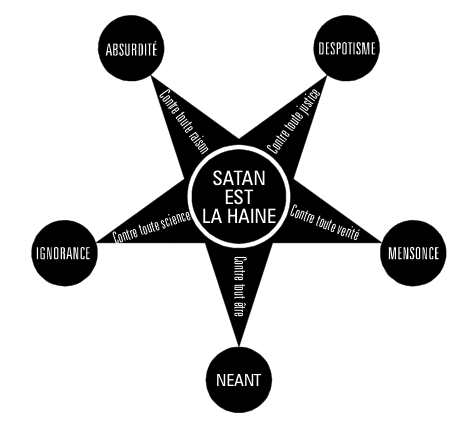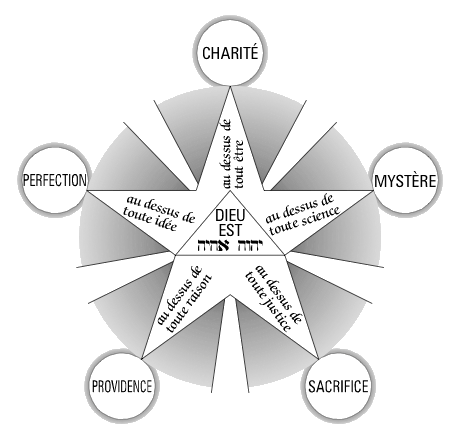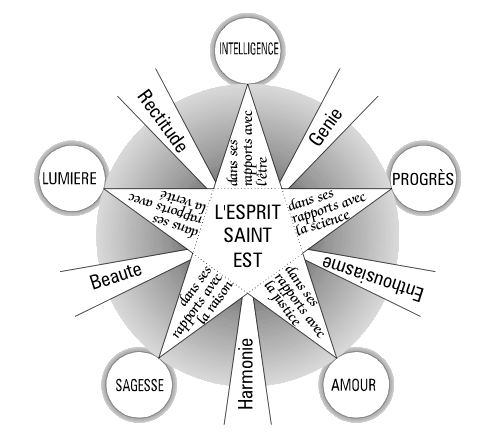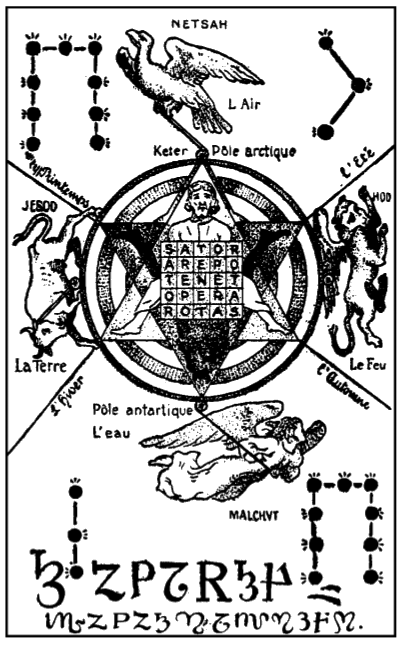The Fourth Part
The Great Practical Secrets
or the Realization of Science
Introduction
The lofty sciences of the Qabalah and of Magic promise man an exceptional, real, effective, efficient power, and one should regard them as false and vain if they do not give it.
Judge the teachers by their works, said the supreme Master. This rule of judgment is infallible.
If you wish me to believe in what you know, show me what you do.
God, in order to exalt man to moral emancipation, hides Himself from him and abandons to him, after a fashion, the government of the world. He leaves Himself to be guessed by the grandeurs and harmonies of nature, so that man may progressively make himself perfect by ever exalting the idea that he makes for himself of its author.
Man knows God only by the names which he gives to that Being of beings, and does not distinguish Him but by the images of Him which he endeavours to trace. He is then in a manner the creator of Him Who has created him. He believes himself the mirror of God, and by indefinitely enlarging his own mirage, he thinks that he may be able to sketch in infinite space the shadow of Him Who is without body, without shadow, and without space.
To Create God, to create one's self, to make one's self independent, immortal and without suffering: there certainly is a programme more daring than the dream of Prometheus. Its expression is bold to the point of impiety, its thought ambitious to the point of madness. Well, this programme is only paradoxical in its form, which lends itself to a false and sacrilegious interpretation. In one sense it is perfectly reasonable, and the science of the adepts promises to realize it, and to accomplish it in perfection.
Man, in effect, creates for himself a God corresponding to his own intelligence and his own goodness; he cannot raise his ideal higher than his moral development permits him to do. The God whom he adores is always an enlargement of his own reflection. To conceive the absolute of goodness and justice is to be one's self exceeding just and good.
The moral qualities of the spirit are riches, and the greatest of all riches. One must acquire them by strife and toil. One may bring this objection, the inequality of aptitudes; some children are born with organisms nearer to perfection. But we ought to believe that such organisms result from a more advanced work of Nature, and the children who are endowed with them have acquired them, if not by their own efforts, at least by the consolidated works of the human beings to whom their existence is bound. It is a secret of Nature, and Nature does nothing by chance; the possession of more developed intellectual faculties, like that of money and land, constitutes an indefeasible right of transmission and inheritance.
Yes, man is called to complete the work of his creator, and every instant employed by him to improve himself or to destroy himself, is decisive for all eternity. It is by the conquest of an intelligence eternally clear and of a will eternally just, that he constitutes himself as living for eternal life, since nothing survives injustice and error but the penalty of their disorder. To understand good is to will it, and on the plane of justice to will is to do. For this reason the Gospel tells us that men will be judged according to their works.
Our works make us so much what we are, that our body itself, as we have said, receives the modification, and sometimes the complete change, of its form from our habits.
A form conquered, or submitted to, becomes a providence, or a fatality, for all one's existence. Those strange figures which the Egyptians gave to the human symbols of divinity represent the fatal forms. Typhon has a crocodile's head. He is condemned to eat ceaselessly in order to fill his hippopotamus belly. Thus he is devoted, by his greed and his ugliness, to eternal destruction.
Man can kill or vivify his faculties by negligence or by abuse. He can create for himself new faculties by the good use of those which he has received from Nature. People often say that the affections will not be commanded, that faith is not possible for all, that one does not re-make one's own character. All these assertions are true only for the idle or the perverse. One can make one's self faithful, pious, loving, devoted, when one wishes sincerely to be so. One can give to one's spirit the calm of justness, as to one's will the almighty power of justice. Once can reign in Heaven by virtue of faith, on earth by virtue of science. The man who knows how to command himself is king of all Nature.
We are going to state forthwith, in this last book, by what means the true initiates have made themselves the masters of life, how they have overcome sorrow and death; how they work upon themselves and others the transformation of Proteus; how they exercise the divining power of Apollonius; how they make the gold of Raymond Lully and of Flamel; how in order to renew their youth they possess the secrets of Postel the Re-arisen, and those alleged to have been in the keeping of Cagliostro. In short, we are going to speak the last word of magic.



